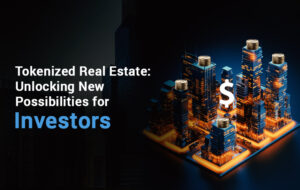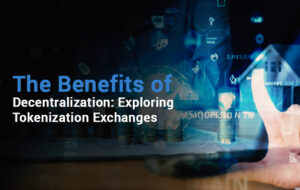Real estate investment has long been revered as a stable asset class, offering investors a tangible and often lucrative path to wealth accumulation. However, the traditional real estate investment landscape is undergoing a profound transformation, thanks to the disruptive influence of blockchain technology and the rise of tokenization. This evolution is not just changing how we invest in real estate; it is redefining the very nature of ownership and access to real estate assets. This blog delves into the journey from traditional to tokenized real estate investment, exploring the key drivers and benefits of this paradigm shift for investors and the broader real estate industry.
Traditional Real Estate Investment
Traditional real estate investment involves buying physical properties, such as residential or commercial buildings, and generating income through rent or capital appreciation. While this approach has been successful for many investors, it often requires substantial capital, time, and effort to manage properties effectively. Additionally, traditional real estate investments are relatively illiquid, making it challenging to buy or sell properties quickly.
The Rise of Tokenization
Tokenization is the process of converting real-world assets, such as real estate, into digital tokens that can be traded on blockchain networks. By tokenizing real estate assets, investors can own a fraction of a property, represented by a digital token, rather than owning the entire property outright. This fractional ownership model enables investors to diversify their portfolios with smaller amounts of capital and access a wider range of investment opportunities.
Benefits of Tokenized Real Estate Investment
Increased Liquidity
Tokenization allows real estate assets to be divided into smaller, more easily tradable units, represented by digital tokens. This fractional ownership model enables investors to buy and sell tokens quickly and easily, enhancing market liquidity. Unlike traditional real estate investments, which can be relatively illiquid, tokenized real estate investments offer greater flexibility and the ability to liquidate assets more efficiently.
Fractional Ownership
Tokenization enables investors to own a fraction of a property, rather than the entire property. This fractional ownership model reduces the barrier to entry for real estate investment, as investors can participate with smaller amounts of capital. Additionally, fractional ownership allows investors to diversify their portfolios by investing in multiple properties, spreading risk across different assets.
Accessibility
Tokenization provides real estate investment to a broader range of investors, including retail investors and those from emerging markets. By lowering the barrier to entry and offering smaller investment denominations, tokenized real estate investments democratize access to real estate assets that were previously out of reach for many investors. This increased accessibility can help to expand the investor base and create a more inclusive investment environment.
Transparency and Security
Blockchain technology, which underpins tokenization, provides a transparent and secure record of ownership and transactions. Each transaction is recorded on a distributed ledger that is immutable and tamper-proof, reducing the risk of fraud or disputes. This transparency and security can increase investor confidence in tokenized real estate investments, as they can verify ownership and track the history of a property’s ownership and transactions.
Kalp is a pioneering digital public infrastructure, powered by a regulated permissioned decentralized coalition DLT that enables the SMART Exchange platform. This platform uses tokenization to allow investment in real-world assets in a secure, innovative, and user-friendly way. By making investing in real-world assets more accessible, SMART Exchange aims to support specialized businesses. With its structured approach, stringent security, and commitment to compliance, the platform offers an appealing option for diversified and efficient investing. Its regulation, security measures and focus on usability and compliance make it stand out as an accessible way to add real assets to an investment portfolio.
Conclusion
The evolution of real estate investment from traditional to tokenized represents a paradigm shift in how properties are bought, sold, and managed. Tokenization offers numerous benefits, including increased liquidity, fractional ownership, and greater accessibility. As blockchain technology continues to mature, we can expect to see tokenization play an increasingly important role in the real estate industry, opening new opportunities for investors and transforming the way we think about real estate investment.




